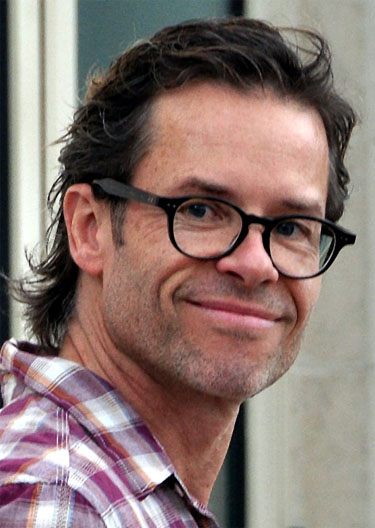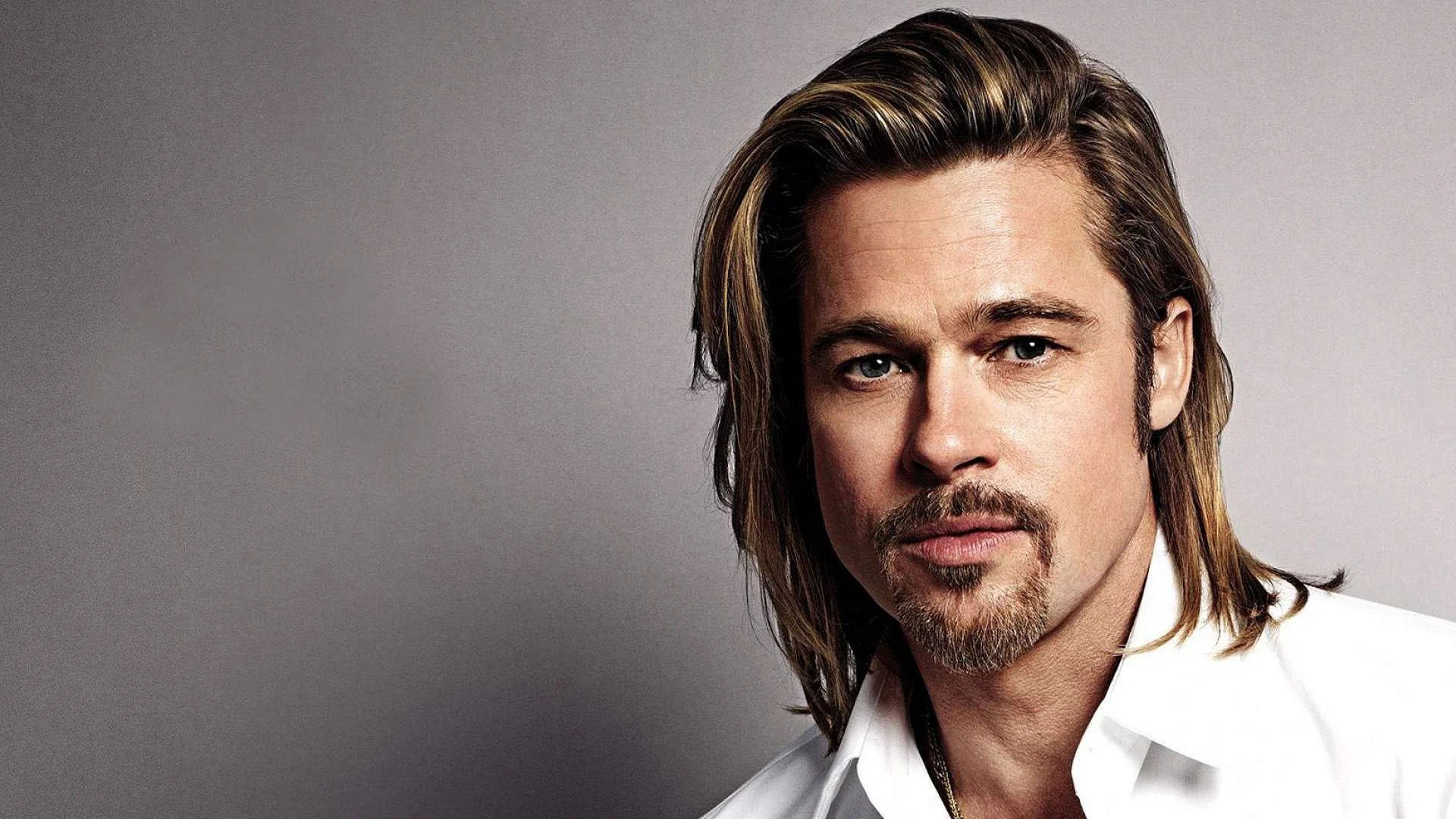Unpacking The Enduring Contributions Of Guy Picciotto To American Music
When we think about folks who truly shaped the sound of independent music, particularly in the punk scene, one name often comes up: Guy Picciotto. He is, you know, a figure whose work has resonated with so many listeners for a good long while. His efforts as a songwriter, a player of instruments, and someone who helps create records have left a real mark, especially coming from Washington, D.C. It’s pretty clear his impact stretches far and wide.
Born on September 17, 1965, Guy Picciotto has, in some respects, been at the heart of some very important musical movements. He brought a unique spirit to every project he touched, really. From his early days in the energetic D.C. music world to his time with Fugazi, his approach to making sounds and writing words was, like, always honest and full of feeling. It's honestly quite something to think about.
This piece aims to shine a light on the many ways Guy Picciotto has influenced music, looking at his beginnings, his key projects, and the lasting impression he's made. We'll explore why his work still matters to people who care about music that speaks from the heart, and stuff. You know, we'll try to get a good sense of his journey.
Table of Contents
- Biography and Early Life
- The Sound of Fugazi
- Shaping the Punk Rock Genre
- Behind the Scenes: Composer and Producer
- Early D.C. Bands and Their Impact
- Frequently Asked Questions About Guy Picciotto
- A Lasting Musical Legacy
Biography and Early Life
Guy Picciotto, a person whose musical journey has, arguably, been quite interesting, came into the world on September 17, 1965. He grew up in Washington, D.C., USA, a place that, in a way, became a hotbed for a certain kind of independent music. His early years there set the stage for a career that would see him become a significant voice in American rock, especially within the punk scene. It’s pretty clear his roots run deep in that city's musical history.
He started out, you know, playing instruments and writing songs, eventually becoming a record producer too. This background gave him a pretty good feel for how music is put together, from the very first idea to the final recording. As a matter of fact, his work has always shown a deep connection to the creative process, whether he was playing guitar or helping other artists bring their sounds to life. He just has that kind of knack, apparently.
Personal Details and Bio Data
| Detail | Information |
|---|---|
| Full Name | Guy Picciotto |
| Born | September 17, 1965 |
| Birthplace | Washington, D.C., USA |
| Occupations | Songwriter, Musician, Record Producer, Composer |
| Notable Bands | Fugazi, and other D.C. bands from the 80s |
| Key Instruments | Guitar, Vocals |
The Sound of Fugazi
When you talk about Guy Picciotto, you, like, pretty much have to talk about Fugazi. He was a key part of this group, handling both guitar and singing duties. Fugazi, which also featured Ian MacKaye on guitar and vocals, Joe Lally on bass, and Brendan Canty on drums, really became a band that many people looked up to. They had a way of doing things that was, you know, quite distinct.
The band's approach to music was, arguably, very much their own. They mixed different sounds and ideas, creating something that felt fresh and, you know, a bit different from what others were doing. Guy Picciotto's contributions to their sound were, as a matter of fact, central to what made Fugazi so compelling. His guitar playing and vocal style helped give the band its unique edge, and stuff.
Their songs often carried messages that made you think, and the music itself was, like, often powerful and direct. It's pretty clear that Fugazi, with Guy Picciotto as a core member, pushed the boundaries of what rock music could be. They showed that you could be intense and meaningful without, you know, giving up on your principles. Many people still listen to their records today, actually, and feel that connection.
The way they played together, the interplay between the instruments and voices, was, so, something special. Guy Picciotto's presence, particularly his guitar work and vocal delivery, really added a lot of layers to their sound. It was, you know, a truly collaborative effort that produced some really memorable music. You can, like, still hear their influence in many bands that came after them, which is pretty cool.
Shaping the Punk Rock Genre
Guy Picciotto's impact goes, honestly, beyond just playing in bands. He's often seen as someone who truly pushed the punk rock genre forward. His work, both in Fugazi and his earlier groups, helped redefine what punk could sound like and, you know, what it could stand for. He was, in a way, an innovator, someone who wasn't afraid to try new things and challenge expectations.
He inspired, like, a whole generation of musicians to be more open and honest in their work. This idea of "emotional honesty" was, as a matter of fact, a big part of what he brought to the table. He showed that you could be loud and powerful while still expressing deep feelings and thoughts. It was, you know, a pretty powerful message for many young artists trying to find their voice.
His creativity, too, was, like, something that really stood out. Guy Picciotto encouraged others to think outside the box, to not just copy what had been done before but to create something truly original. This emphasis on unique expression and genuine feeling helped shape the direction of American rock music, particularly in the independent scene. Many artists, you know, still look to his work for inspiration, which is pretty neat.
The way he approached music, with a focus on integrity and pushing limits, left a deep impression. It's not just about the notes he played or the words he sang; it's about the attitude and the spirit he brought to everything. He showed that music could be a force for change, a way to connect with people on a deeper level. You can, arguably, see his fingerprints on so much music that followed, a lasting legacy, really.
Behind the Scenes: Composer and Producer
Beyond his time on stage, Guy Picciotto has also spent a good deal of time working behind the scenes as a composer and a producer. This part of his career shows his broader talents and his deep understanding of how music is made. He's not just a performer; he's someone who can help shape the sound and feel of a piece from start to finish. It's, like, a different kind of creative effort, but just as important, actually.
His work as a composer includes contributions to films, which is, you know, a pretty different medium from rock music. For instance, he's known for his work on "Chain" from 2004, "Museum Hours" from 2012, and "Wrinkles the Clown" from 2019. These projects show his ability to create sounds that fit a visual story, which is, like, a skill that requires a good ear and a lot of imagination. He clearly has that, apparently.
As a producer, he helps other artists bring their ideas to life, guiding them through the recording process. This role means he's involved in everything from arranging the instruments to getting the right sound in the studio. It's a job that needs a good bit of patience and a clear vision, and he seems to have both in spades. His experience as a musician, of course, gives him a unique perspective when he's producing, which is pretty helpful.
His contributions in these roles further show his versatility and his lasting influence on the broader music and film worlds. It's, you know, a testament to his dedication to creative expression in its many forms. Whether he's playing guitar or crafting a soundtrack, Guy Picciotto continues to make his mark, and that's, arguably, something pretty special. You can learn more about how artists like him contribute to the broader music world by visiting a trusted music site.
Early D.C. Bands and Their Impact
Before Fugazi, Guy Picciotto was, you know, a founding member of several other bands in the D.C. area during the 1980s. These groups, while perhaps not as widely known as Fugazi, were, as a matter of fact, incredibly important in shaping the local music scene and, by extension, the direction of American rock music. They were, like, laboratories for new sounds and ideas, really.
These early bands helped lay the groundwork for the unique sound that would become synonymous with D.C. punk and post-hardcore. Guy Picciotto's involvement in these groups meant he was, you know, there at the very beginning, helping to define a particular style of music that prioritized raw energy and thoughtful lyrics. It was, like, a time of real innovation, and he was right in the middle of it.
The spirit of independence and do-it-yourself ethics that characterized the D.C. scene was, arguably, something Guy Picciotto embodied from the start. His work in these earlier bands showed a commitment to making music on his own terms, without relying on big labels or mainstream trends. This approach, you know, set a precedent for many artists who came after him, proving that you could make a big impact without following the usual path.
So, these formative years were, in a way, crucial for his development as an artist and for the overall musical landscape. The experience he gained and the connections he made during this time clearly informed his later work, particularly with Fugazi. It's pretty clear that his journey started with a bang in those early D.C. days, and stuff.
Frequently Asked Questions About Guy Picciotto
Who is Guy Picciotto?
Guy Picciotto, born on September 17, 1965, in Washington, D.C., USA, is, you know, an American songwriter, musician, and record producer. He's also a composer. He's widely recognized for his work as a guitarist and vocalist in the influential band Fugazi, and for his contributions to the punk rock scene. He's, arguably, a pretty important figure in independent music.
What bands was Guy Picciotto in?
Guy Picciotto sang and played guitar in Fugazi, a band he helped lead with fellow D.C. punk legend Ian MacKaye. He was, as a matter of fact, also a founding member of numerous other D.C. bands in the 1980s that, you know, made a significant impact on American rock music. So, he's been in quite a few notable groups, really.
Is Fugazi still together?
The information provided states that Fugazi consists of guitarists and vocalists Ian MacKaye and Guy Picciotto, bassist Joe Lally, and drummer Brendan Canty. While the text describes the band's lineup, it doesn't, you know, explicitly say whether they are still actively performing or recording as of today. Many fans, you know, still hope for new music from them, though.
A Lasting Musical Legacy
Guy Picciotto's contributions to music are, honestly, quite extensive. From his powerful performances with Fugazi to his behind-the-scenes work as a composer and producer, he has consistently shown a deep commitment to making sounds that matter. His influence stretches far beyond the specific bands he played in, inspiring countless musicians to approach their art with honesty and a spirit of true creativity. It's, you know, pretty clear he's left a big mark.
His dedication to pushing boundaries and fostering a genuine connection through music has, arguably, cemented his place as a truly important figure in American rock. The principles he stood for – artistic independence and emotional truth – continue to resonate with listeners and artists alike. We can, like, still feel the echoes of his work in today's music, which is pretty cool. To learn more about his journey, you might want to explore your site's main page, and for more specific details, check out another relevant page on our site.

Guy Pearce - Wikipedia

500+ Interesting Guy Photos · Pexels · Free Stock Photos

Guy